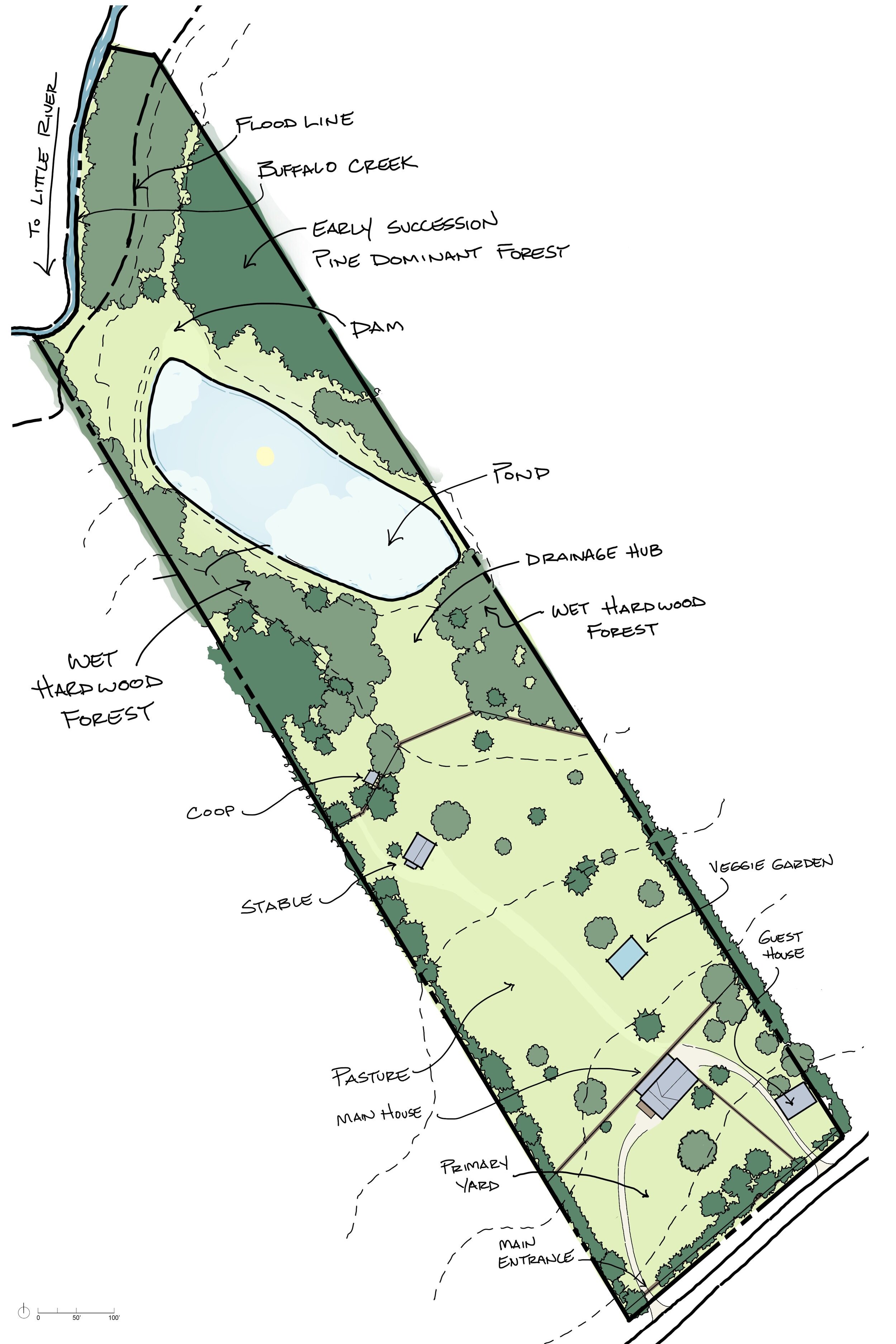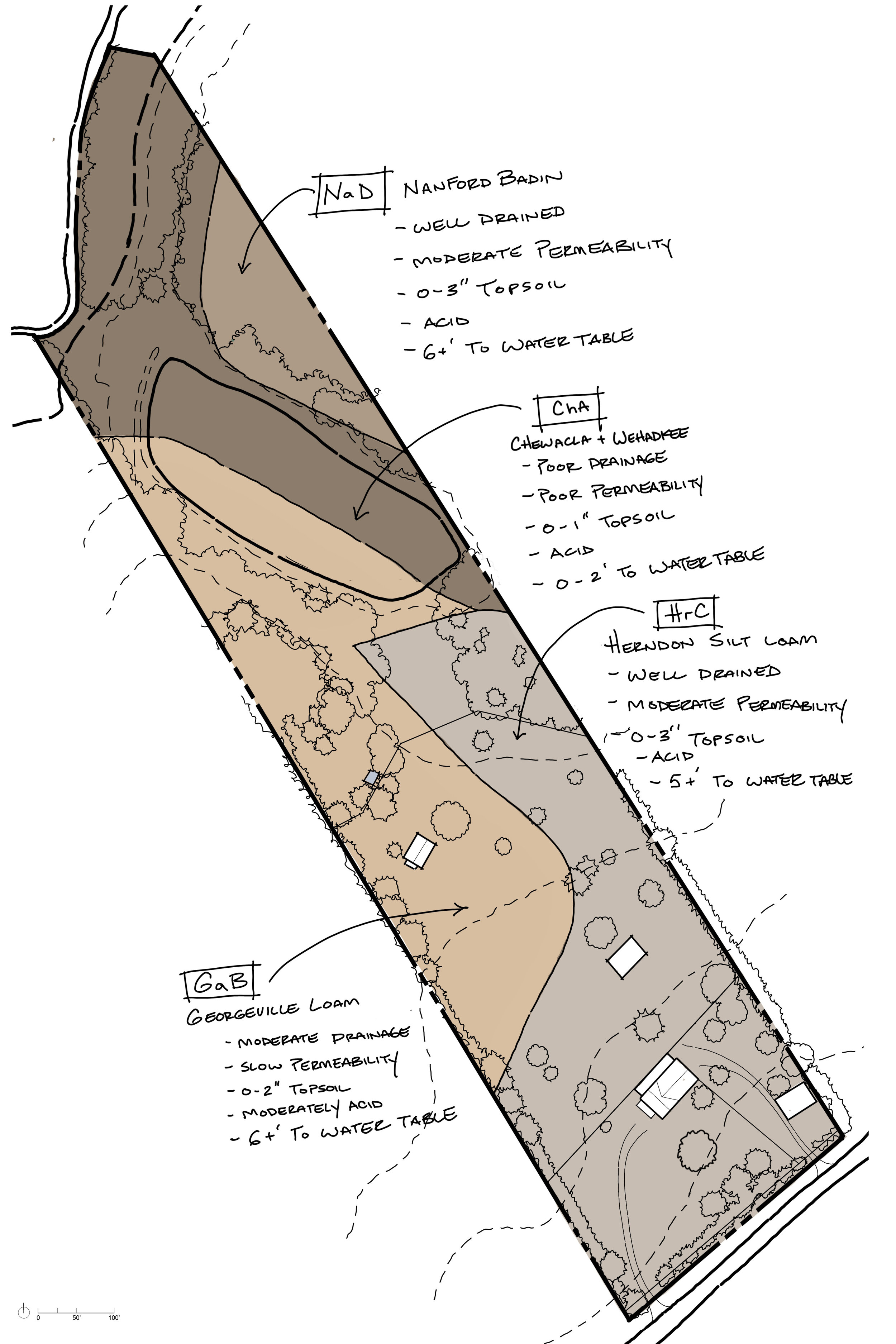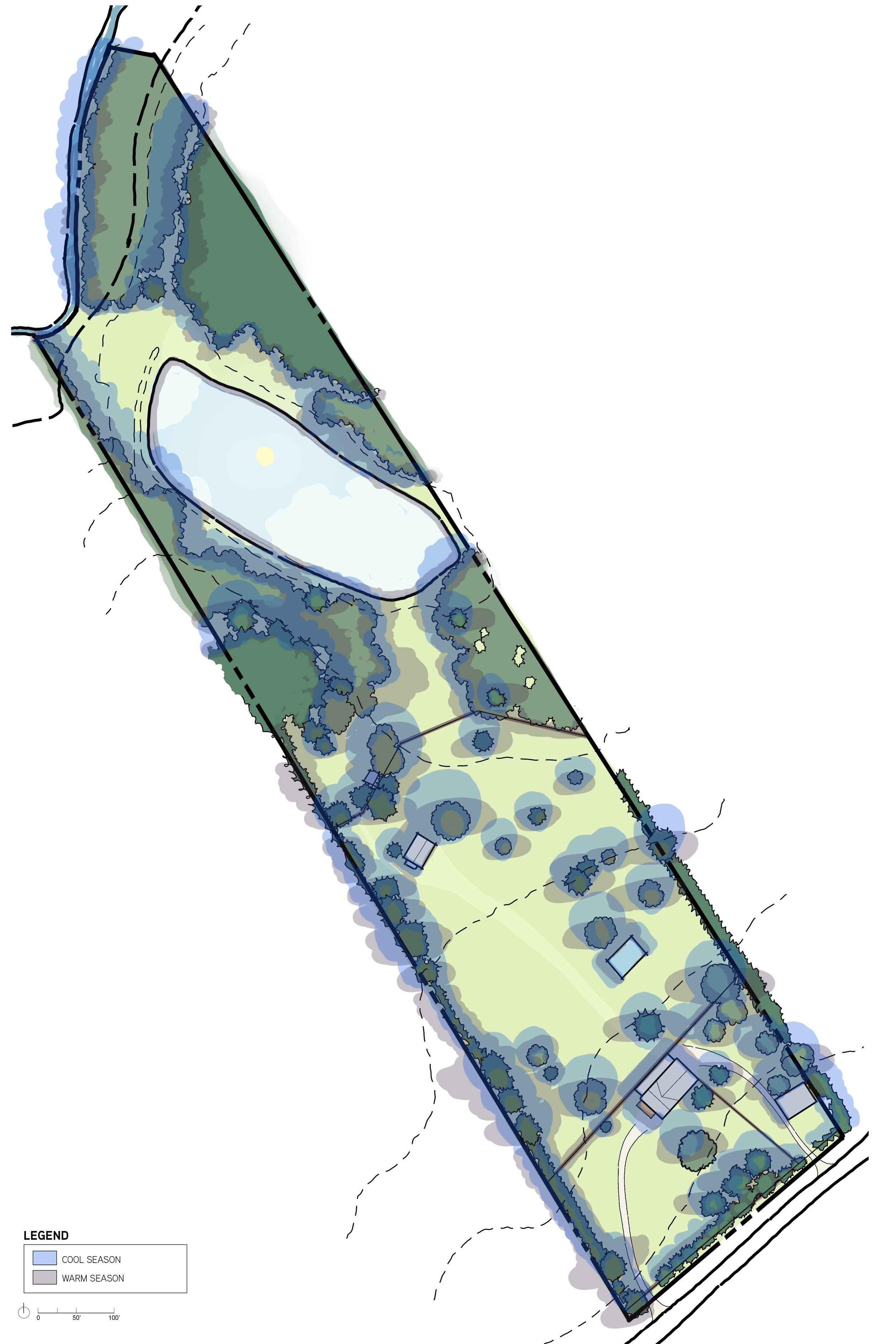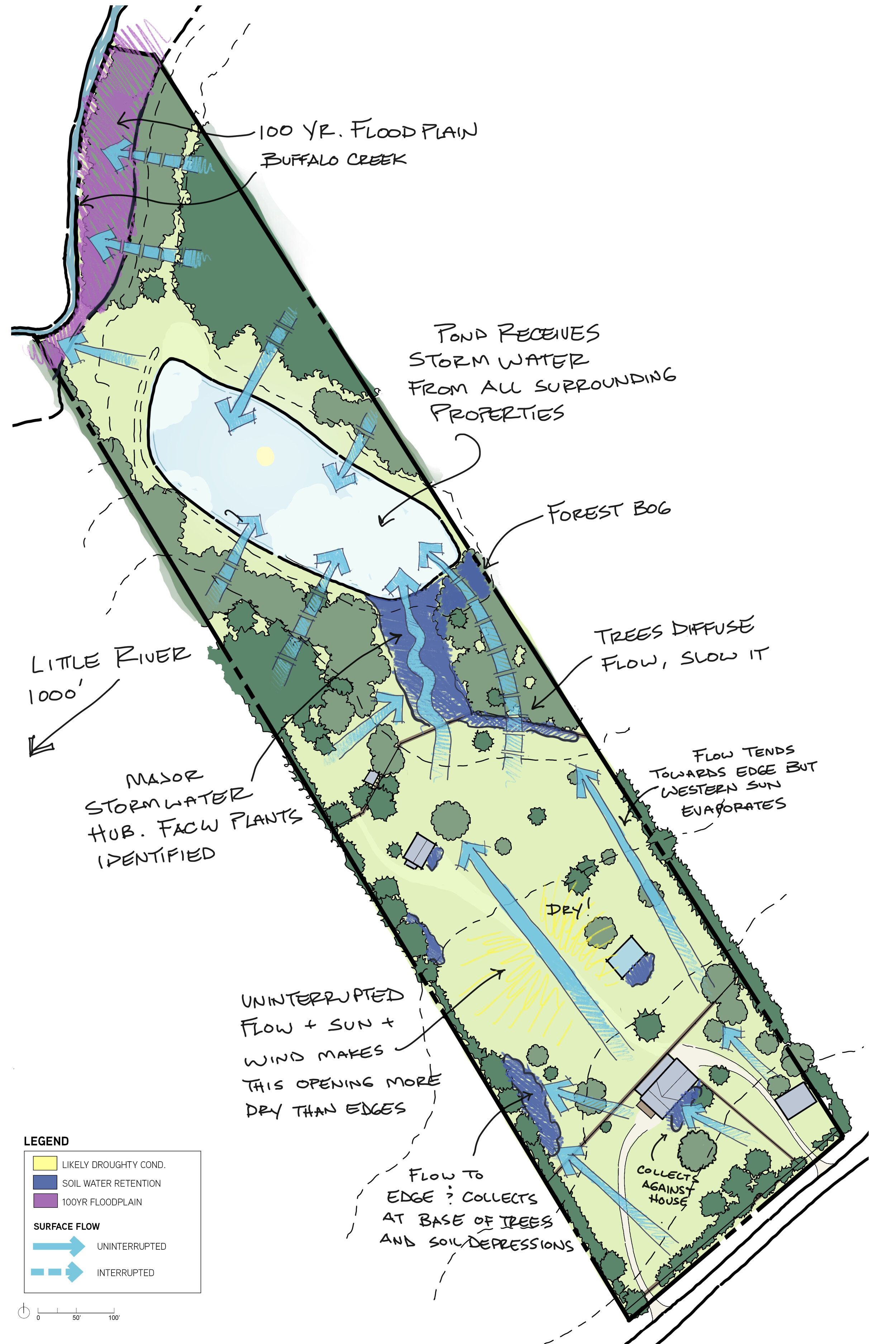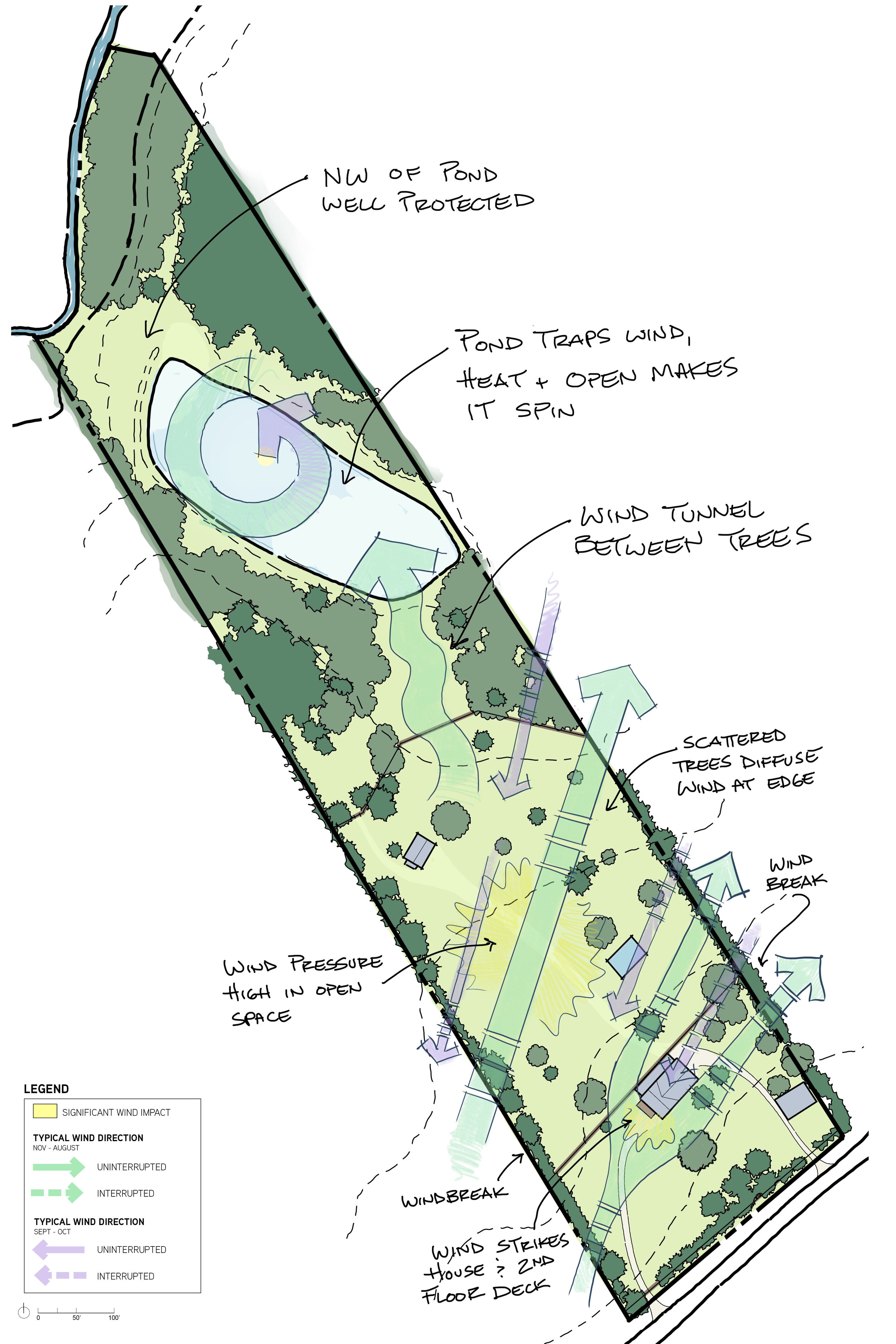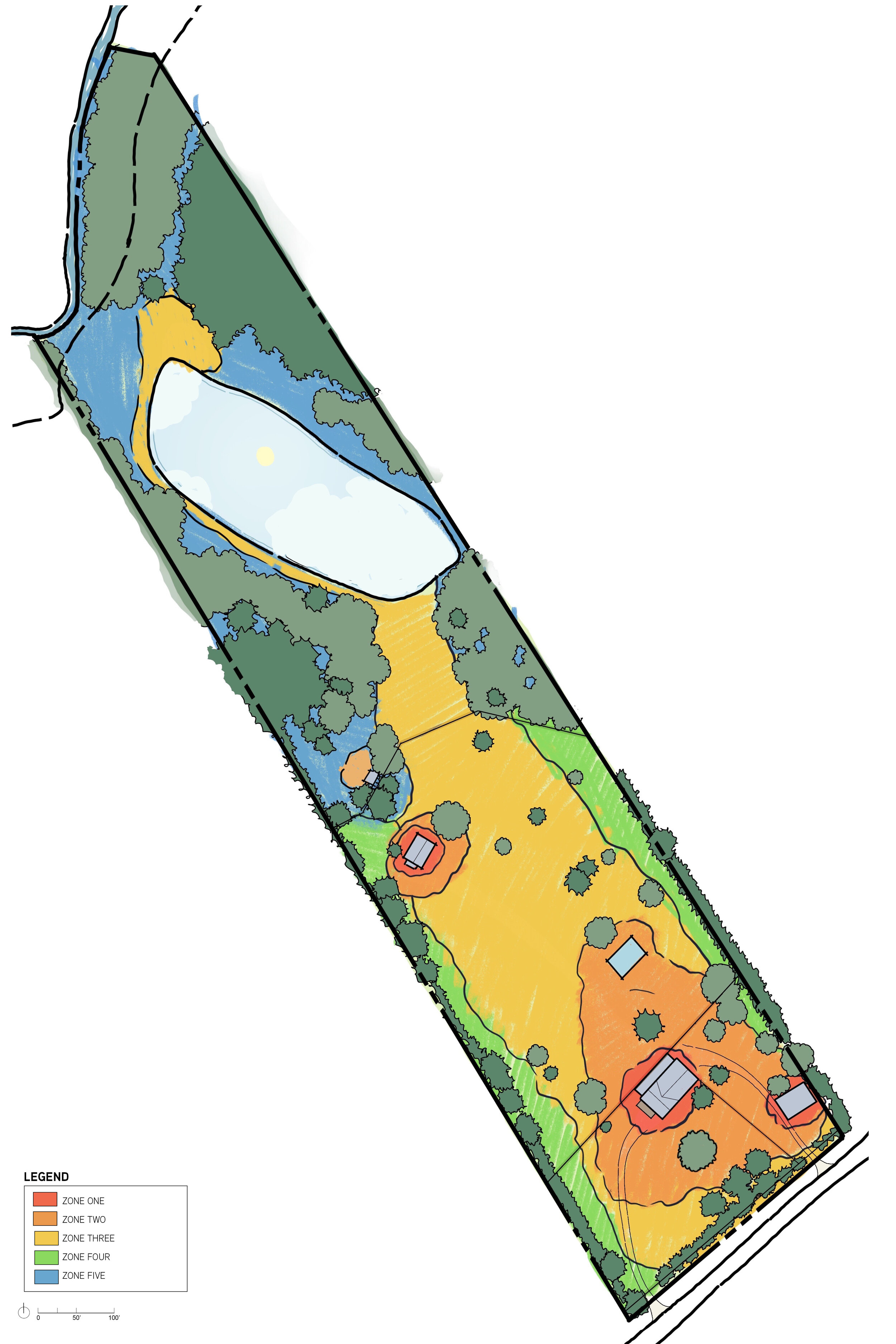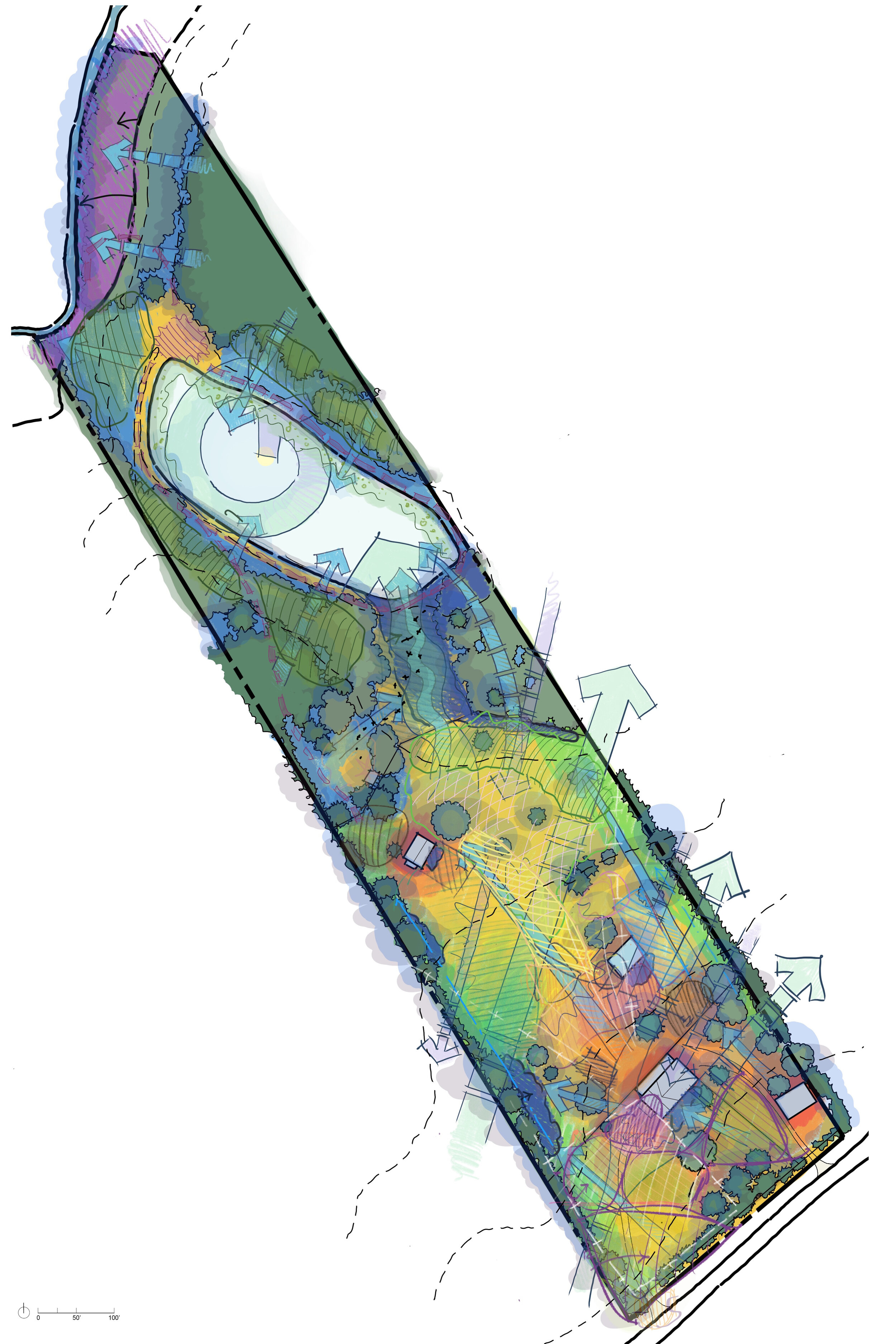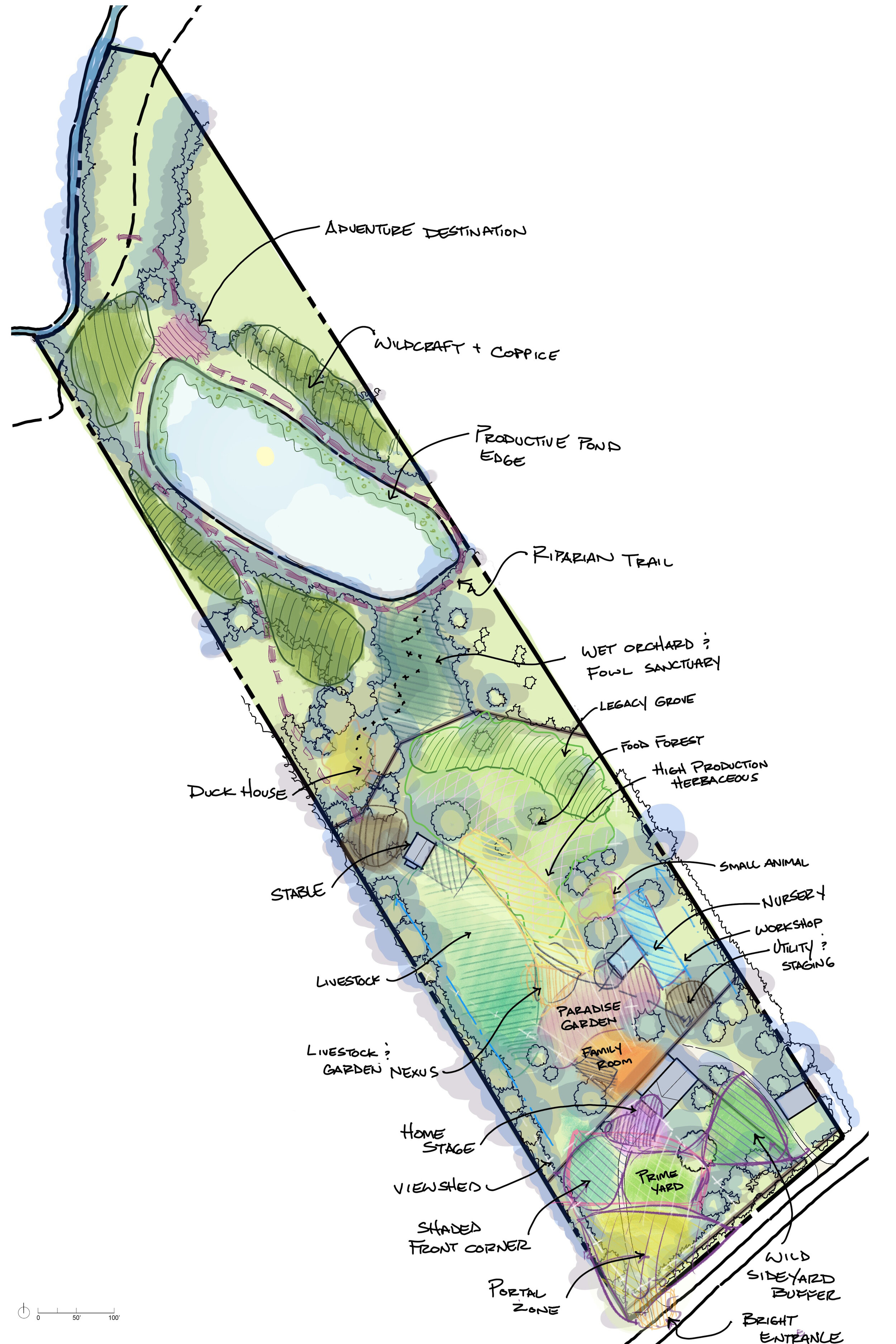Werness Farm
Nestled into the bucolic hills of northern Durham County, North Carolina, the tranquil Werness Farm watches the ebb and flow of the nearby Little River. The land here at the center of the county’s “horse country” has been farmed for centuries, but cultural changes sparked by the expansion of nearby Durham are rapidly changing not only the demographics of this area, but also the services these communities provide.
The Werness Farm as seen from the irrigation pond looking south with stables and farm house in view.
As the formerly rural area transforms into exurbs, progressive new-comers to the area are purchasing fallow farms and exploring the land’s capacity to generate revenue through the development of eco-tourism and intentional communities that echo the Back to the Land movement.
The 11 acre Werness Farm is an example of this trend: land at the brink of succession being transformed into a community capitalizing on existing farm infrastructure to generate tourism and agriculture products. However, rather than focus on a single crop, the Werness Farm seeks to provide a diversity of products and tourism experiences that respond to the diversity of microclimates on the property.
The pond presents an opportunity to create a place of contemplation, recreation, and spiritual nourishment as well as a resource for producing fowl and irrigating crops that helps close the resource loop on the Werness Farm.
Furthermore, developing the Werness Farm began by prioritizing permaculture principles as a foundation for masterplanning and, ultimately, marketing of products, services, and experiences. Through careful environmental analysis, and guided by permaculture principles, the masterplan for the Werness Farm balances client interests with appropriate and sustainable commercial expressions of the farm’s many microclimates.
